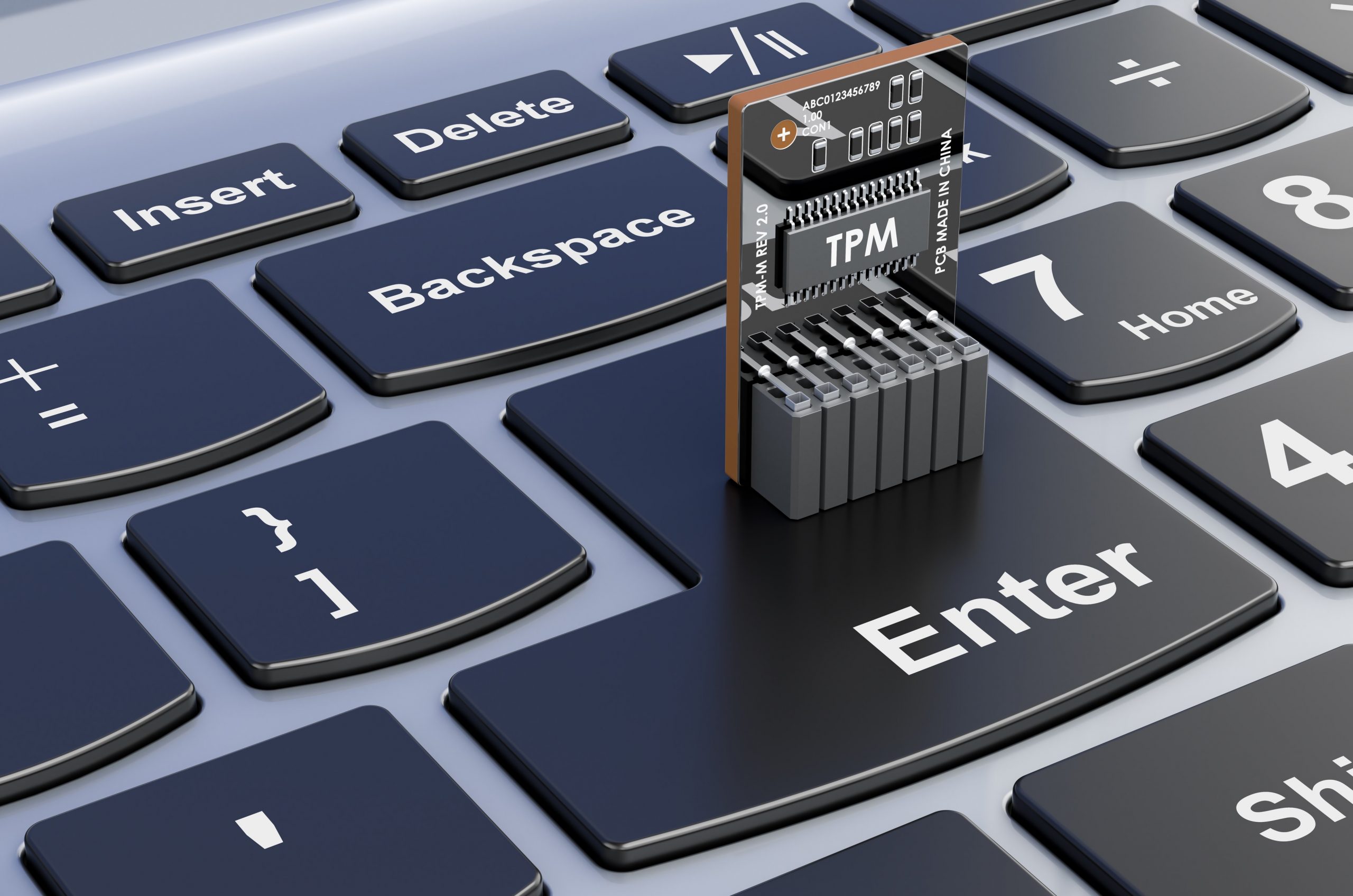In 2023 alone, the world faced staggering costs from cyberattacks, a figure to be estimated at a jaw-dropping $11.5 trillion. The figure includes everything from monetary losses to service disruptions and the myriad impacts of data breaches. Worse, these numbers are only set to rise, with predictions suggesting damages could reach $23.84 trillion by 2027.
It’s no wonder computer makers, given these alarming trends, are ramping up efforts to combat such cyberattacks. One key player in their arsenal is the Trusted Platform Module or TPM. What exactly is it, and why should you care? Let’s dive in!
What is Cryptography?
So, what exactly is a Trusted Platform Module? To answer this question, we first have to understand the art of cryptography.
Cryptography, or cryptology, is all about encoding and securing information so that only the right people can access it. It’s a practice as old as writing itself. Simple letter substitutions, childhood decoder rings, and the complex Enigma cipher used in World War II are just but a few examples of cryptography.
The field has evolved tremendously with the rise of computers. Today, cryptography creates its intricate codes thanks to combinations drawn upon computer science, engineering, and mathematics. When data is encrypted, such as a patient’s medical records or a company’s financial information, it becomes a seemingly random string of characters that are nearly impossible to translate for anyone without the proper key.
Enter the TPM: Your Cybersecurity Sidekick
Now enter the TPM.
In brief, TPM is a specialized chip on your computer’s motherboard. It is similar to (but independent from) the computer’s CPU, memory, and GPU. The TPM’s sole job is to generate and store those cryptographic keys used to ensure that your computer’s data remains protected from unauthorized access.
How Does a TPM Work?
The TPM springs into action the moment you power up your machine. During your computer’s boot-up sequence, the TPM generates a unique cryptographic key that matches another key stored on your computer’s hard drive or solid-state drive. If the keys line up, your drive decrypts, and you or any other authorized user can access the data as usual. However, if someone has tampered with either the TPM or the drive, the data remains locked away, and its information is kept safe. (“Access denied”, cybercrooks!)
TPMs don’t just play a role at boot-up; they’re also used by various programs and hardware. Many email clients like Outlook and web browsers like Chrome utilize TPMs to handle encrypted messages and manage website SSL certificates. The latter enables SSL/TLS encryption, which offers better protections when accessing webpages than standard methods.
How Different Sectors Are Utilizing TPMs
The enhanced security that TPMs provide is why they’re increasingly being embraced by different industries, from healthcare to industrial to the corporate sectors. Let’s take a look at how some of them are leveraging these nifty chips.
1. TPMs in Healthcare
Robust security measures are essential for healthcare organizations as they are prime targets for cybercriminals. TPMs, for example, help ensure that the sensitive patient data stored on medical computers is encrypted and secure. Telehealth technologies like remote patient monitoring can also be monitored to prevent tampering.
2. TPMs in Industrial Settings
In industrial applications, cybercriminals often attempt to gain access to industrial computers and networks through USB drives loaded with malicious software. TPMs play a critical role in keeping those passwords and other forms of sensitive data secure as they can’t be affected by such means. This protection becomes essential in rugged or remote environments where industrial computers may not be constantly monitored. TPM safeguards crucial operations in such places automatically by detecting such threats and locking out potential intruders.
3. TPMs in the Corporate World
Businesses in sectors like finance, retail, and telecommunications are increasingly integrating TPMs as part of their overall cybersecurity strategy. The reason is simple: TPM enhances data protection measures, leading to compliance with industry regulations and standards. Many organizations in this sector know TPM not only helps protect sensitive customer information but also bolsters the organization’s reputation and trustworthiness among customers.
The Shift Towards TPM 2.0
In 2016, Microsoft announced that it had made TPM 2.0 mandatory for computers running Windows 11. Simply, the OS would not run on any PC not using TPM 2.0 protocols. While businesses grumbled, this shift signaled a collective push toward improved cybersecurity measures.
Closing Thoughts
The staggering statistic at the beginning of this article serves as a wake-up call: as we become more reliant on computers, our vulnerability to cyber threats grows. Protecting your data should be a top priority, no matter what industry you’re in. By implementing Trusted Platform Modules, businesses and individuals can take advantage of robust cryptographic tools that help keep information safe and secure.
So, whether you’re a healthcare provider, a manufacturer, or simply someone who values your data privacy, consider investing in technology that includes TPMs. They might just be the security sidekick you didn’t know you needed, fighting off cyber threats while you focus on what really matters—growing your business and serving your customers.
